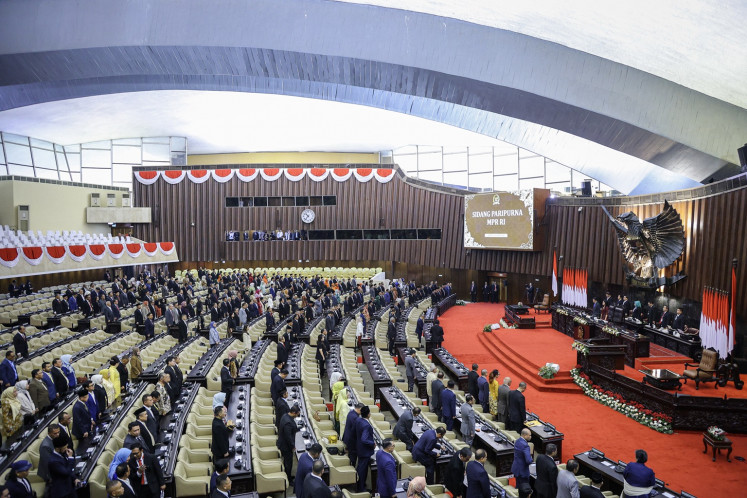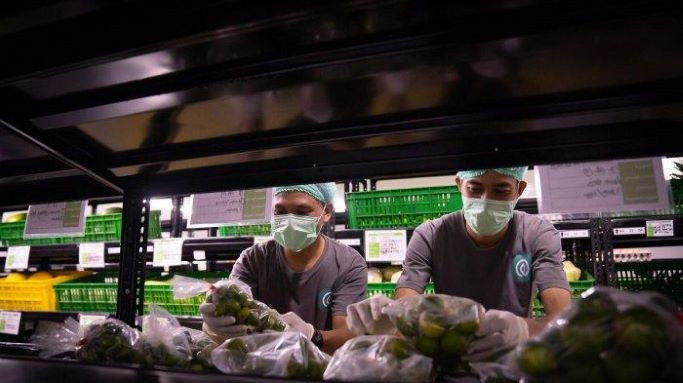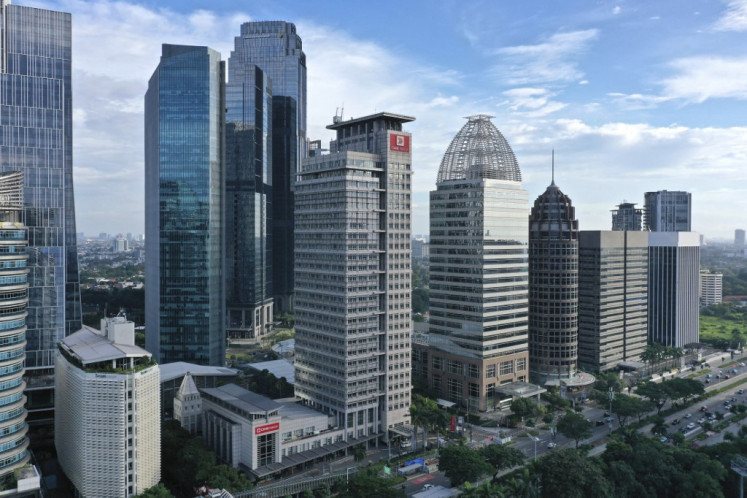Popular Reads
Top Results
Can't find what you're looking for?
View all search resultsPopular Reads
Top Results
Can't find what you're looking for?
View all search resultsHurdles faced on the way to a clean capital
While the successful management of garbage benefits everyone, the task is often difficult for the people who make it happen
Change text size
Gift Premium Articles
to Anyone
While the successful management of garbage benefits everyone, the task is often difficult for the people who make it happen.
PT Mittran, which helps clean up neighborhoods in Jakarta, receives no incentives from the city administration for its work.
"Once an official from the city administration even asked us if we had a permit to collect garbage," senior partner Roy Kuntjoro said.
Roy said members of the company told the official they had permission from local residents, despite the fact no regulation exists stipulating that a company must have a permit to collect and process garbage.
"We had to stop operating for a few days. But people representing the 3,000 families we serve went to the administration and demanded that we be allowed to continue the service. So we started operating again," he said.
Challenges do not only come from the administration. Roy said every month police officers visit the company.
"They leave only when we have given them an envelope. The officers who come are different all the time, but I believe they come from the same subprecinct office," he added.
Endang Wardiningsih, a chemistry teacher at SMU 34 Pondok Labu, South Jakarta, said it took her four years to secure the school's full support to commence a recycling program in 2000.
"I talked to students ... when I wanted to start the recycling activity in 1996. They were pessimistic about what results we might achieve. But I encouraged them to continue. The school's management board finally saw we were serious and gave us their support," she said.
The school was declared a model school in terms of its environmental vision a few years ago by the national Education Ministry.
Susukan subdistrict resident Supriyadi, who established a local waste management program, said in the beginning it was difficult to convince people it was necessary to sort through garbage. He said his team had to impose regulations stipulating that people should dispose of their garbage between 6 a.m. and 8 a.m. and between 4 a.m. and 6 p.m.
"We had to do that so when people went to the dump, we could see how they sorted their garbage out. If we found any mistakes, we told them to correct their sorting methods," he said.
"We are yet to reach perfection in garbage management. But we're improving and I believe we're going in the right direction," he added.
-- Tifa Asrianti










